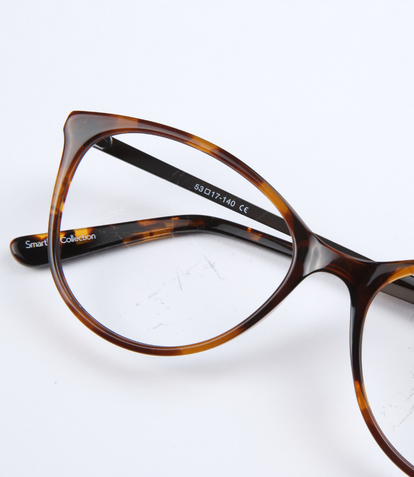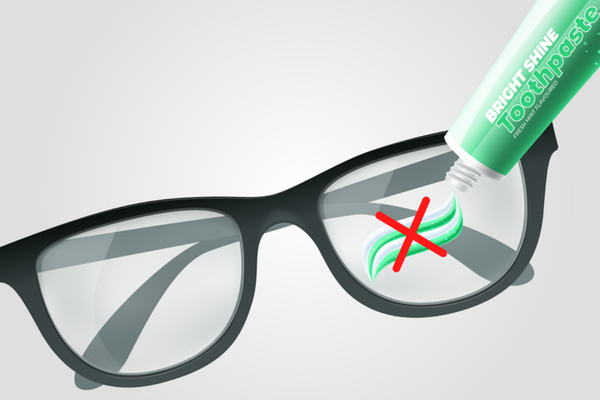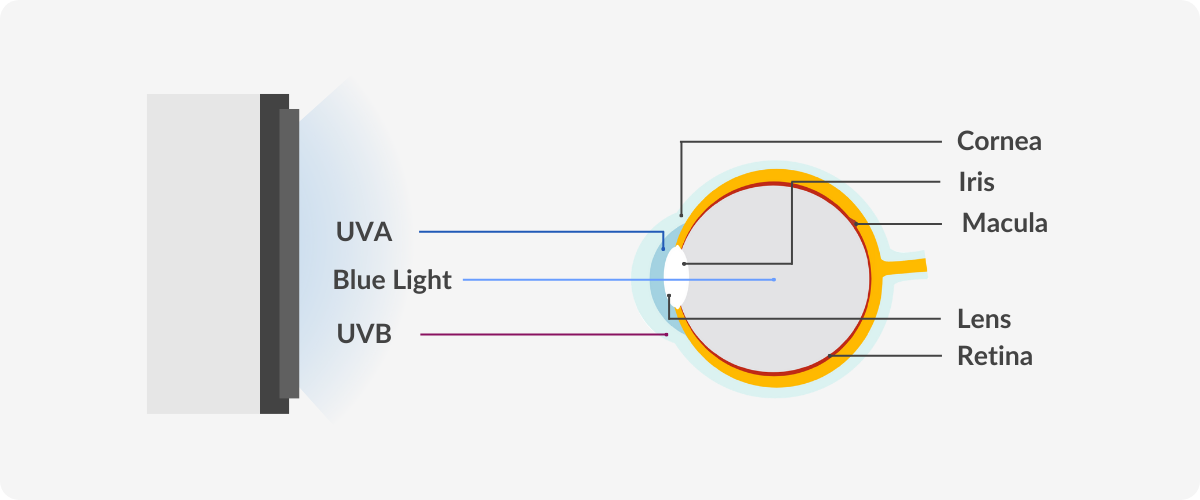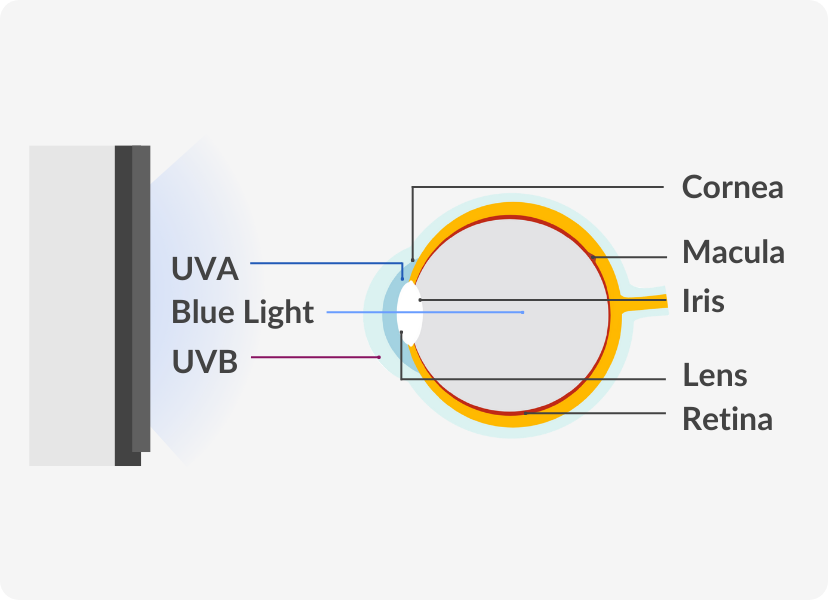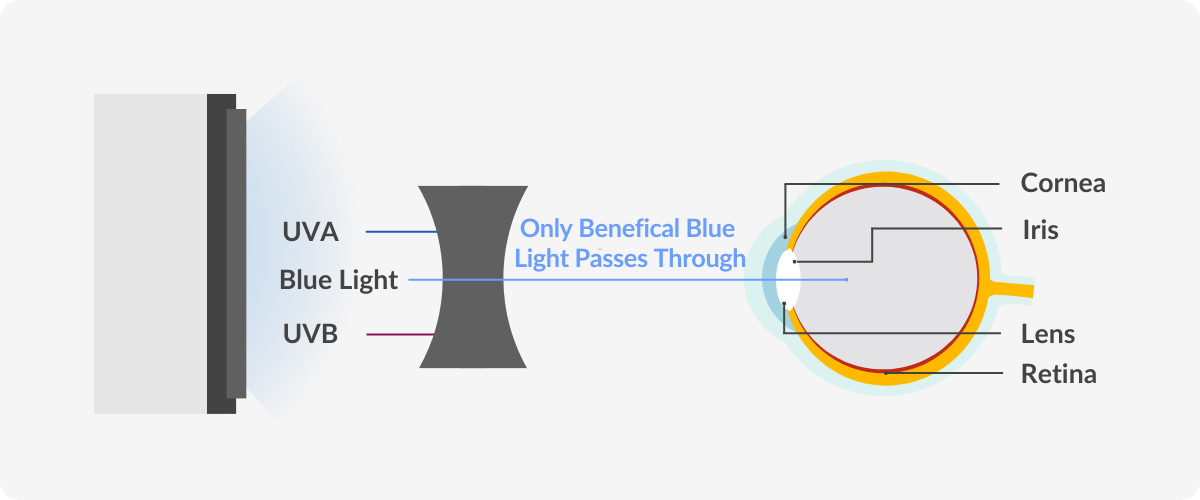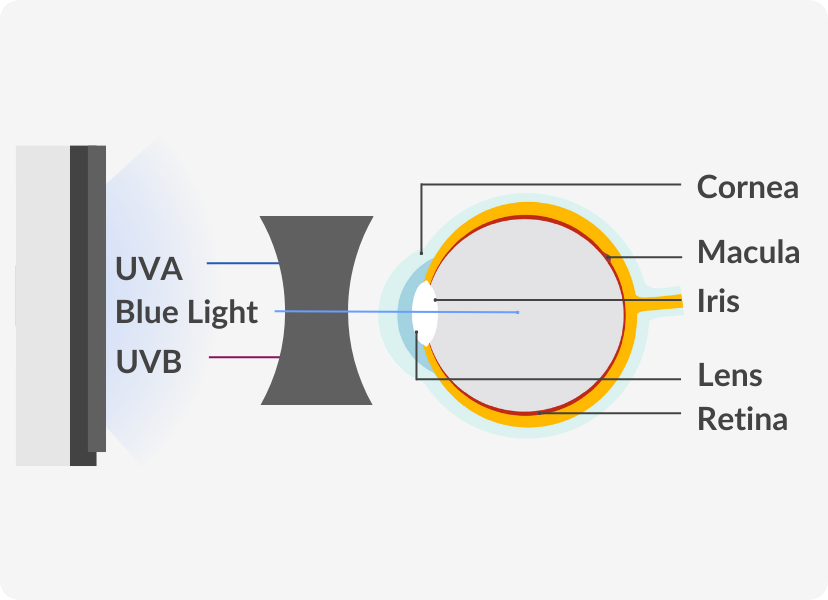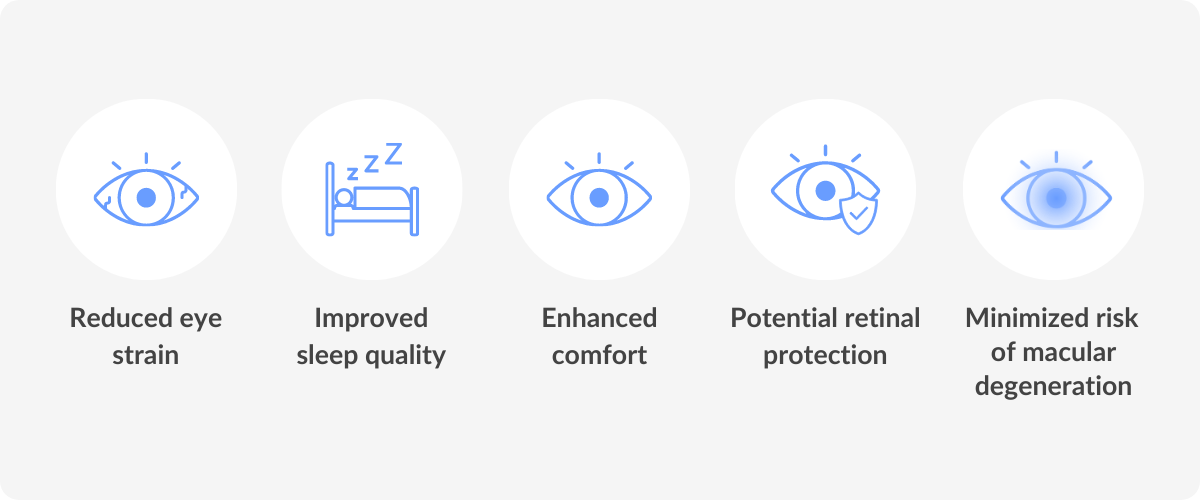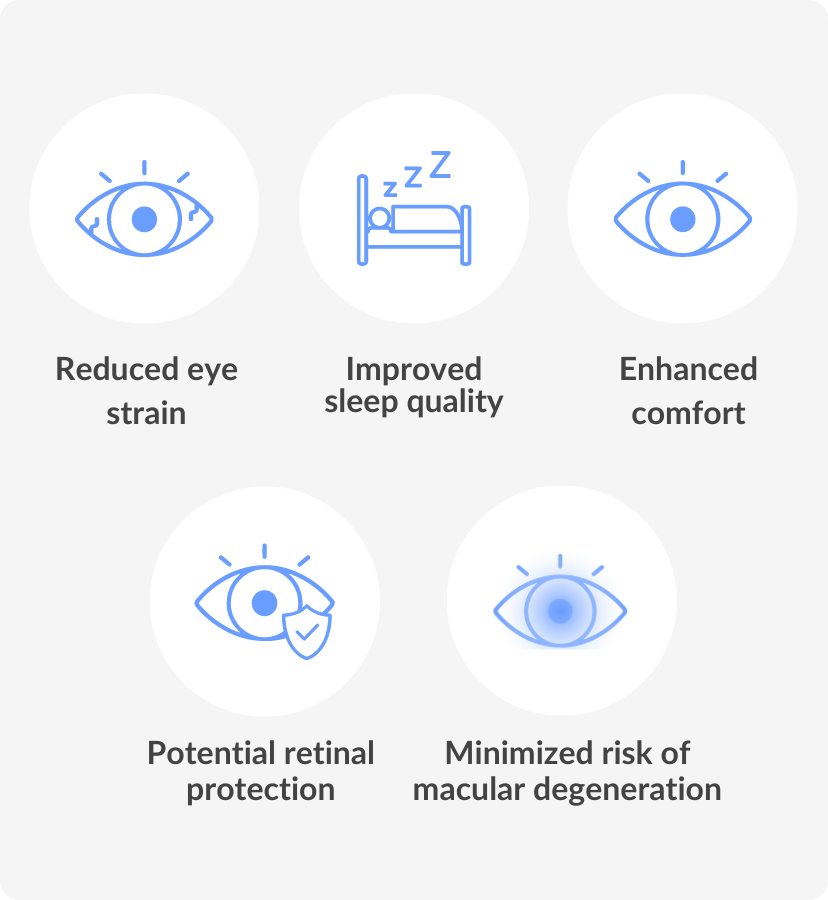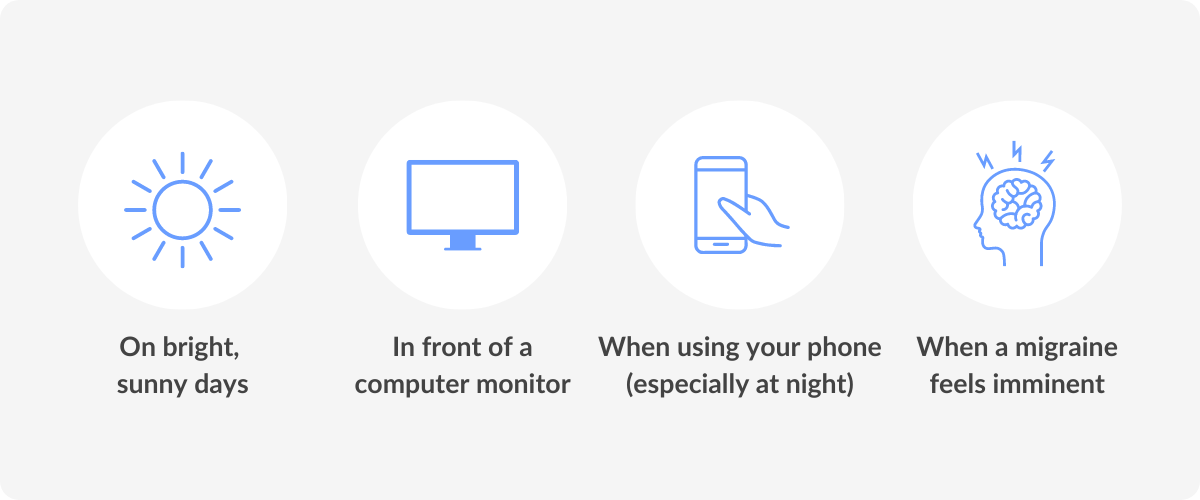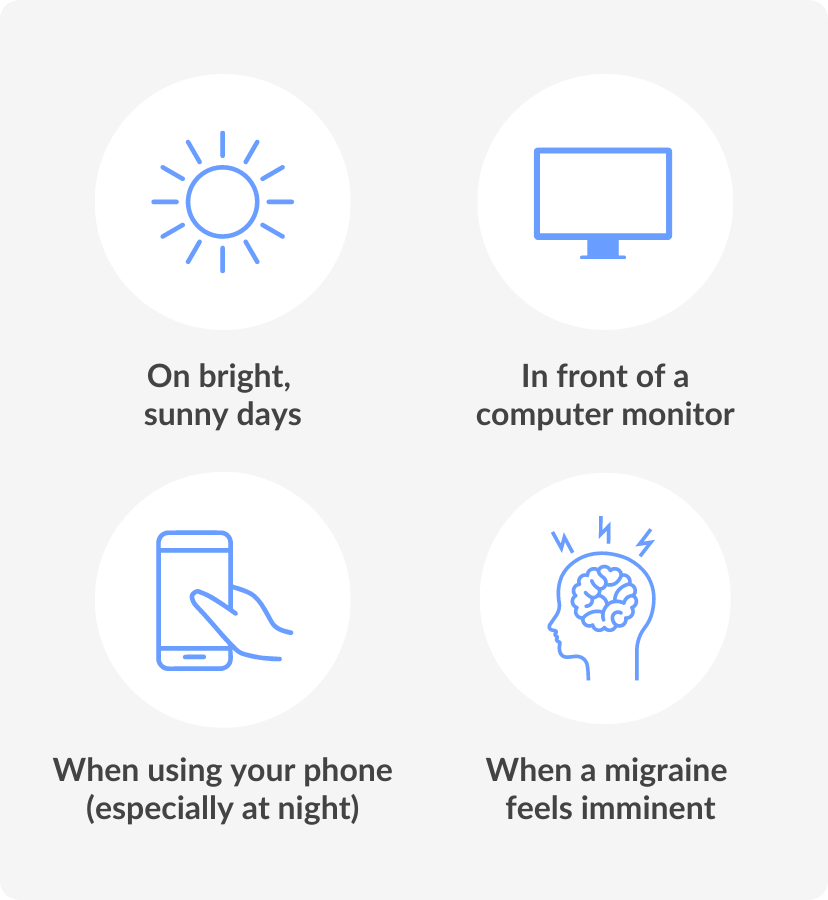
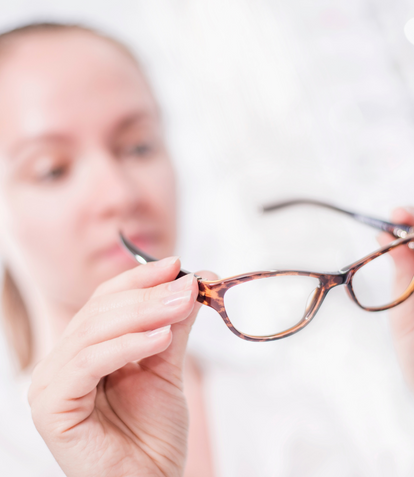
How Do You Know What Strength Reading Glasses to Get?
As the name suggests, reading glasses are glasses that help read, see objects in close range or complete daunting tasks like threading a needle. When buying a pair of readers, there are several types to choose from, which can be good but also confusing. What lenses work best? How do you know what strength to get? Will the reading glasses help your astigmatism? We are here to answer all these questions and more.
Do I need reading glasses?
Have you noticed your vision is blurry lately while reading a book or using your mobile? This is one of the key signs that it’s time to buy reading glasses. Other symptoms include squinting when looking at something within close range, difficulties reading small print text, headaches and eye strain after reading, holding your reading material at arm’s length to see better, and increased eye fatigue. If you find yourself experiencing any of these symptoms, you likely need a pair of reading glasses.
Eye test for readers glasses: how to find out if you need readers
Presbyopia is the gradual loss of your eye’s ability to focus on nearby objects. The symptoms of presbyopia are typically an age-related condition that occurs and deteriorates over a period of time. The best way to find out what strength reading glasses to get is by consulting an eye doctor and getting medical advice. Because it is an age-related condition, we advise seeing an eye doctor regularly as the age progresses, especially if you are already experiencing some of the symptoms mentioned above.
Even though presbyopia tends to be an age-related condition, people younger than 40 also tend to get it because of the modern-day nature of working on near-distance objects, especially on digital devices. A comfortable pair of prescription reading glasses can help with vision correction; they magnify vision, making smaller print larger and easier to read.
At-home reading glasses test
When looking for reading glasses and not knowing what power to select, it can be very tempting to search for at-home tests to give you that information. Unfortunately, determining the strength of the glasses on your own can lead to selecting the wrong power and damaging your eyes. By deciding what power to get on your own, you could end up using more power than you truly need; this could lead to your eyes getting used to it and making your vision worse.
If you need a pair of reading glasses, the best way to find out which power works for you is by consulting an eye specialist. This will prevent you from getting the wrong glasses and damaging your vision.

What if my reading glasses don’t work?
If you’re already wearing reading glasses and find yourself experiencing headaches or still having difficulties reading, you might start to wonder if your reading glasses are effective or not. Chances are you got your prescription a very long time ago and now need more power in your lenses, which means you should probably get your eyes checked.
Another reason why your reading glasses might not be working for you is that you chose the power without consulting a specialist. If you still struggle reading, you probably chose the wrong power and need to consult a specialist. Once you have that sorted, you will be able to choose between different types of lenses.
What are reading glasses and the many different types you can choose from
The most common type of lenses for reading glasses are single-vision lenses; in this case, both lenses have the same power. Multifocal/progressive lenses, on the other hand, have multiple prescriptions in one lens, which makes it easier to switch between seeing close-up, in-between, and far away. Multifocal lenses are the best choice for those looking to correct more than one problem, while single-vision lenses can be a good option if you need the same power for both eyes and only have one prescription. Another option to consider is adding a blue light block to your lenses. This will help with eyestrain, fatigue, and headaches whenever being in front of a screen for many hours. Check out our guide for more information on buying glasses online and the types of lenses we offer.
Will reading glasses help astigmatism?
Although the symptoms of astigmatism and presbyopia may seem similar, reading glasses cannot help all individuals with astigmatism. It is important to remember that generic reading glasses only magnify whatever you look up close. Because people with astigmatism may also be nearsighted or farsighted, reading glasses are not advised if you suffer from astigmatism. To determine whether you have astigmatism, we advise seeing an eye professional.
Where to buy reading glasses: 5 easy steps to buy the perfect pair
With so many options, both over-the-counter and online, it can be confusing to choose the best pair. So here are five easy steps to select the best readers from the comfort of your home and immediately start seeing better!
Step 1: Head to our website
Step 2: Head to our glasses section
Step 3: Filter to reading glasses
Step 4: Choose your favourite frames and select the power (It is possible to choose from +1.00, +1.50, +2.00, +2.50, +3.00, and +3.50)
Step 5: Securely check out online!
With SmartBuy Readers, you can invest in several pairs to always have one nearby. Keep a pair in the office, one in your handbag, one in your car, and one at home so you always have easy access to clearer vision. If you have any more questions about reading glasses, ask our opticians!
How Do You Know What Strength Reading Glasses to Get?
As the name suggests, reading glasses are glasses that help read, see objects in close range or complete daunting tasks like threading a needle. When buying a pair of readers, there are several types to choose from, which can be good but also confusing. What lenses work best? How do you know what strength to get? Will the reading glasses help your astigmatism? We are here to answer all these questions and more.
Do I need reading glasses?
Have you noticed your vision is blurry lately while reading a book or using your mobile? This is one of the key signs that it’s time to buy reading glasses. Other symptoms include squinting when looking at something within close range, difficulties reading small print text, headaches and eye strain after reading, holding your reading material at arm’s length to see better, and increased eye fatigue. If you find yourself experiencing any of these symptoms, you likely need a pair of reading glasses.
Eye test for readers glasses: how to find out if you need readers
Presbyopia is the gradual loss of your eye’s ability to focus on nearby objects. The symptoms of presbyopia are typically an age-related condition that occurs and deteriorates over a period of time. The best way to find out what strength reading glasses to get is by consulting an eye doctor and getting medical advice. Because it is an age-related condition, we advise seeing an eye doctor regularly as the age progresses, especially if you are already experiencing some of the symptoms mentioned above.
Even though presbyopia tends to be an age-related condition, people younger than 40 also tend to get it because of the modern-day nature of working on near-distance objects, especially on digital devices. A comfortable pair of prescription reading glasses can help with vision correction; they magnify vision, making smaller print larger and easier to read.
At-home reading glasses test
When looking for reading glasses and not knowing what power to select, it can be very tempting to search for at-home tests to give you that information. Unfortunately, determining the strength of the glasses on your own can lead to selecting the wrong power and damaging your eyes. By deciding what power to get on your own, you could end up using more power than you truly need; this could lead to your eyes getting used to it and making your vision worse.
If you need a pair of reading glasses, the best way to find out which power works for you is by consulting an eye specialist. This will prevent you from getting the wrong glasses and damaging your vision.

What if my reading glasses don’t work?
If you’re already wearing reading glasses and find yourself experiencing headaches or still having difficulties reading, you might start to wonder if your reading glasses are effective or not. Chances are you got your prescription a very long time ago and now need more power in your lenses, which means you should probably get your eyes checked.
Another reason why your reading glasses might not be working for you is that you chose the power without consulting a specialist. If you still struggle reading, you probably chose the wrong power and need to consult a specialist. Once you have that sorted, you will be able to choose between different types of lenses.
What are reading glasses and the many different types you can choose from
The most common type of lenses for reading glasses are single-vision lenses; in this case, both lenses have the same power. Multifocal/progressive lenses, on the other hand, have multiple prescriptions in one lens, which makes it easier to switch between seeing close-up, in-between, and far away. Multifocal lenses are the best choice for those looking to correct more than one problem, while single-vision lenses can be a good option if you need the same power for both eyes and only have one prescription. Another option to consider is adding a blue light block to your lenses. This will help with eyestrain, fatigue, and headaches whenever being in front of a screen for many hours. Check out our guide for more information on buying glasses online and the types of lenses we offer.
Will reading glasses help astigmatism?
Although the symptoms of astigmatism and presbyopia may seem similar, reading glasses cannot help all individuals with astigmatism. It is important to remember that generic reading glasses only magnify whatever you look up close. Because people with astigmatism may also be nearsighted or farsighted, reading glasses are not advised if you suffer from astigmatism. To determine whether you have astigmatism, we advise seeing an eye professional.
Where to buy reading glasses: 5 easy steps to buy the perfect pair
With so many options, both over-the-counter and online, it can be confusing to choose the best pair. So here are five easy steps to select the best readers from the comfort of your home and immediately start seeing better!
Step 1: Head to our website
Step 2: Head to our glasses section
Step 3: Filter to reading glasses
Step 4: Choose your favourite frames and select the power (It is possible to choose from +1.00, +1.50, +2.00, +2.50, +3.00, and +3.50)
Step 5: Securely check out online!
With SmartBuy Readers, you can invest in several pairs to always have one nearby. Keep a pair in the office, one in your handbag, one in your car, and one at home so you always have easy access to clearer vision. If you have any more questions about reading glasses, ask our opticians!










































